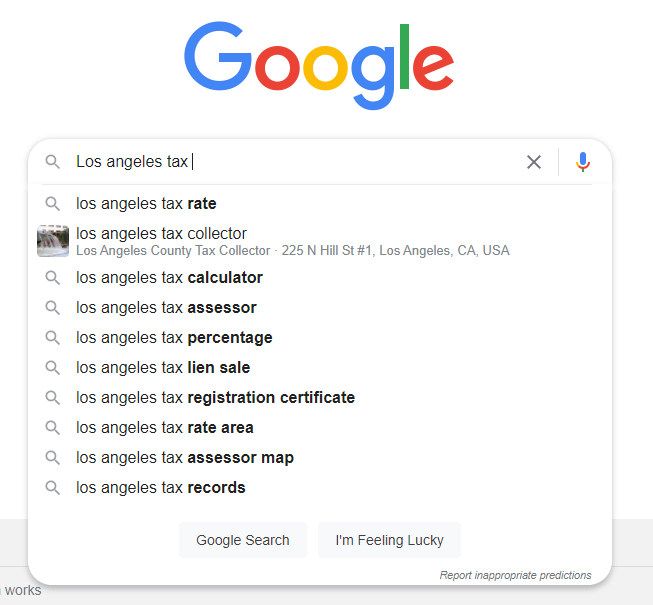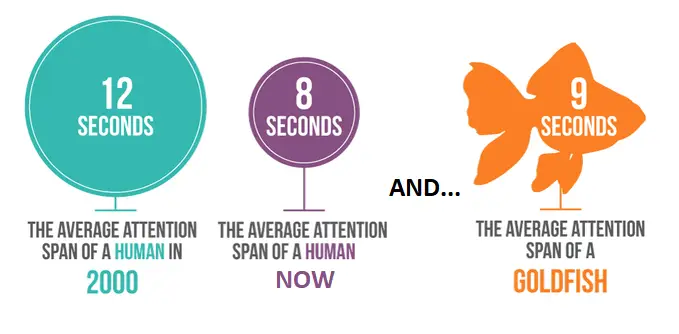And a good number of these people are your potential clients since people are likely searching for this keyword because they need help with their taxes.
If you show up first, imagine how much business that would bring you.
You can read more about finding good keyword ideas for your business in our content marketing guide
And once you’ve chosen a target keyword, your entire article should revolve around it.
Because when it does, that’ll be great for SEO writing, and it’ll make indexing your site for search results much easier.
How to Write For Search Engines Tip #2: Put Your Target Keyword In Your Title, Introduction, and Headers
Now that you have a target keyword, it’s time to put it in places where the search engine will notice it.
In the past, this meant keyword stuffing.
People would add their target keyword as many times as they could on their articles – even to the point of making it grammatically incorrect.
Essentially, the more you stuffed your keyword, the bigger your chance of winning it.
Nowadays, search engines don’t fall for simple tricks like that anymore.
If you try keyword stuffing today, don’t expect any results.
However, it is still essential to add your target keyword in the right places.
If you want your article to rank for “Los Angeles Tax,” you’ll have to put that exact phrase on your article’s title, introduction, and as many subheadings as is natural.
You’ll also want to add that to your title tag and meta description.
Doing so will make it a lot easier for search engines to figure out what your blog post is about.
And it’ll make it a lot easier for them to understand what type of people are looking for an article like this.
How to Write For Search Engines Tip #3: Use Secondary Keywords
Secondary keywords are keywords that are closely related to your target keyword.
Using these for SEO content writing will help you get greater reach and (once again) help search engines index your article better.
Let’s take that article about Los Angeles tax – a good secondary keyword to target would be “Los Angeles Property Tax” or “Los Angeles Income Tax Rate.”
That way, someone who searches for other relevant keywords like those will still end up on your article.
Secondary keywords can also include variations of your target keyword.
For example, you can cut “Los Angeles Tax” down into “LA Tax” or change it into “Tax in Los Angeles.”
Again, adding variations of your target keyword into the body of your article may increase your reach and website traffic.
How do you find secondary keywords?
You won’t have to do too much keyword research to find these.
All you need to do is think about search intent – or what exactly your audience is looking for.
Put yourself in your audience’s shoes, and think of the terms that they might search for.
You can even use Google for help.
Type your target keyword into the search box, and see what the suggestions are.








